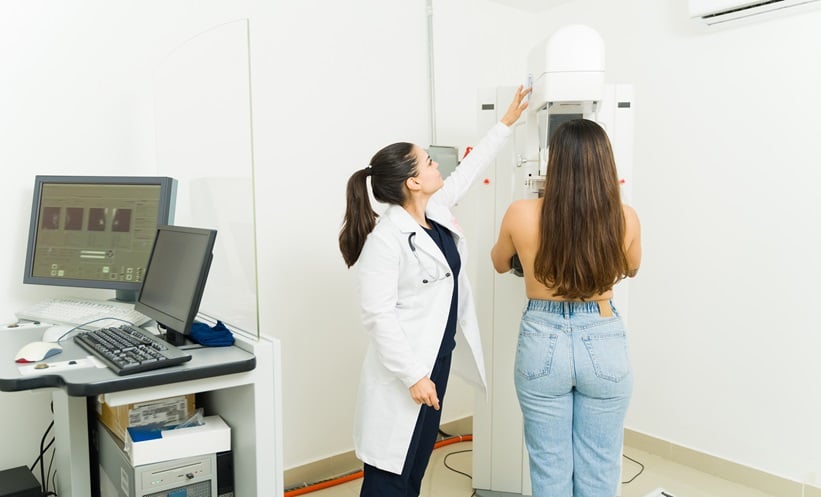A RECENT observational study has shown that AI can significantly enhance breast cancer detection rates in mammography screening without increasing unnecessary recalls. The multicenter study, conducted at 12 screening sites in Germany, represents one of the largest real-world implementations of AI in population-based cancer detection to date.
From July 2021 to February 2023, researchers analyzed data from 463,094 women aged 50–69 who underwent mammography screening. Of these, 260,739 participants were screened using an AI-supported double-reading process, where radiologists voluntarily incorporated AI into their evaluations.
The results revealed a breast cancer detection rate of 6.7 per 1,000 in the AI-supported group, a statistically significant 17.6% increase compared to the 5.7 per 1,000 detection rate in the control group relying solely on standard double reading. Importantly, the AI-supported screening demonstrated a recall rate of 37.4 per 1,000, slightly lower than the 38.3 per 1,000 recall rate observed in the non-AI group. This reduction was deemed noninferior, indicating that AI does not lead to an increase in false-positive findings.
Another key finding was the improvement in the positive predictive value (PPV) of recalls, which rose to 17.9% in the AI group compared to 14.9% in the control group. Similarly, the PPV of biopsies increased from 59.2% to 64.5% with AI support.
These findings suggest that AI can effectively improve critical metrics in mammography screening, including higher cancer detection rates and improved diagnostic accuracy, while maintaining patient safety by avoiding excessive recalls.
This study adds to the growing evidence supporting the integration of AI into routine medical practices, particularly in cancer detection, as it offers significant advantages in accuracy and efficiency for radiologists.
Reference: Eisemann N et al. Nationwide real-world implementation of AI for cancer detection in population-based mammography screening. Nat Med. 2025. doi: 10.1038/s41591-024-03408-6.








